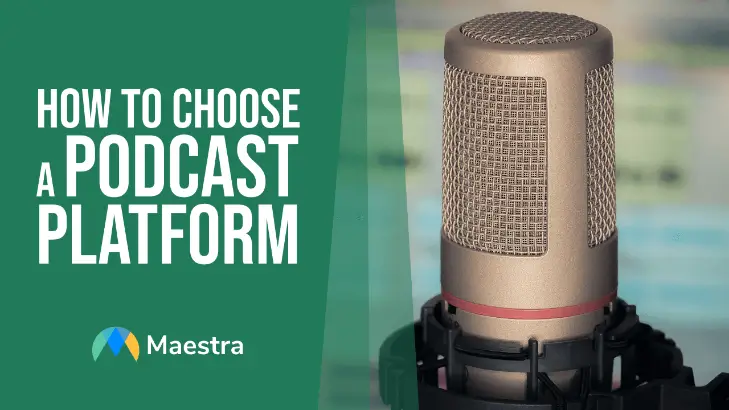How to Choose a Podcast Platform

Evaluate Pricing
If you want to host your podcast somewhere specific, you may incur additional costs in the form of fees for the platform to post your podcast episodes. The good news is that there are free options. Here, we have 10 suggestions for the best free podcast hosting platforms available. Why pay for a platform if you can use a free one? For some creators, paid platforms are a better fit. At their core, podcasting hosting platforms are a place to upload your files and generate RSS feeds for podcasts. But some platforms offer more features than others. For example, podcast platforms may even include marketing tools, social sharing buttons, unlimited bandwidth, 24/7 tech support, analytics reports, and more.Freemium Models
Many of these platforms are described as “easy to use” and have simple interfaces, as well as a good customer service system to support users. However, not all platforms are inherently free. You may have the choice between a free plan that offers basic features or going to a subscription plan to utilize the platform's capabilities. For example, if you want unlimited storage, a service can offer unlimited storage but it is locked behind a paywall. Podcast hosting services such as Soundcloud, Buzzsprout, Simplecast, and Audioboom are all available for free, but they do have additional features that come with additional costs. If you want to invest in more features then you will need to compare the best premium subscription features that each podcast player provides. Although each platform will have drawbacks, it is up to you to find the one that you think will best serve your needs. Some options will allow you to post to other platforms, like Spotify even with the free plan. If you are looking to post your podcast to a specific place, make sure that the platform you select can integrate with other platforms you are looking to post to. Podcast directories (such as Spotify, Apple Podcasts, iHeart Radio, etc.) hold storage for multiple different podcasts and can sort them all by category. Directories also double as a podcast player and podcast search engine. Getting listed in the top podcast directories can help you:- Attract new listeners
- Get more ratings and reviews
- Make subscribers aware of new episodes
Monetization Options
If you are looking to make money from producing your podcast, you want to make sure you go with a web hosting provider that will allow you to take full advantage of monetization options. There are several ways to monetize your podcast, and part of that falls onto you and your podcast production. To make the best use of your podcast platform, you must be consistent and have a good outreach to your audience. If you only post an episode every so often and on different days, your audience will not be as inclined to listen to your podcast. There are several ways to monetize your podcast, but Forbes describes 8 of the most effective strategies for your podcast to rake in the bucks:- Sponsorship Deals
- Affiliate Partnerships
- Offering Premium Content
- Asking for Donations
- Joining a Podcast Advertising Network
- Selling Merchandise
- Selling Access to a Course
- Live Events
